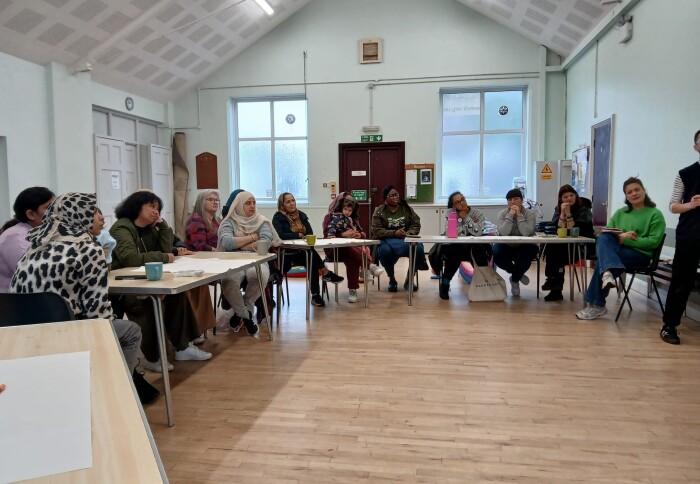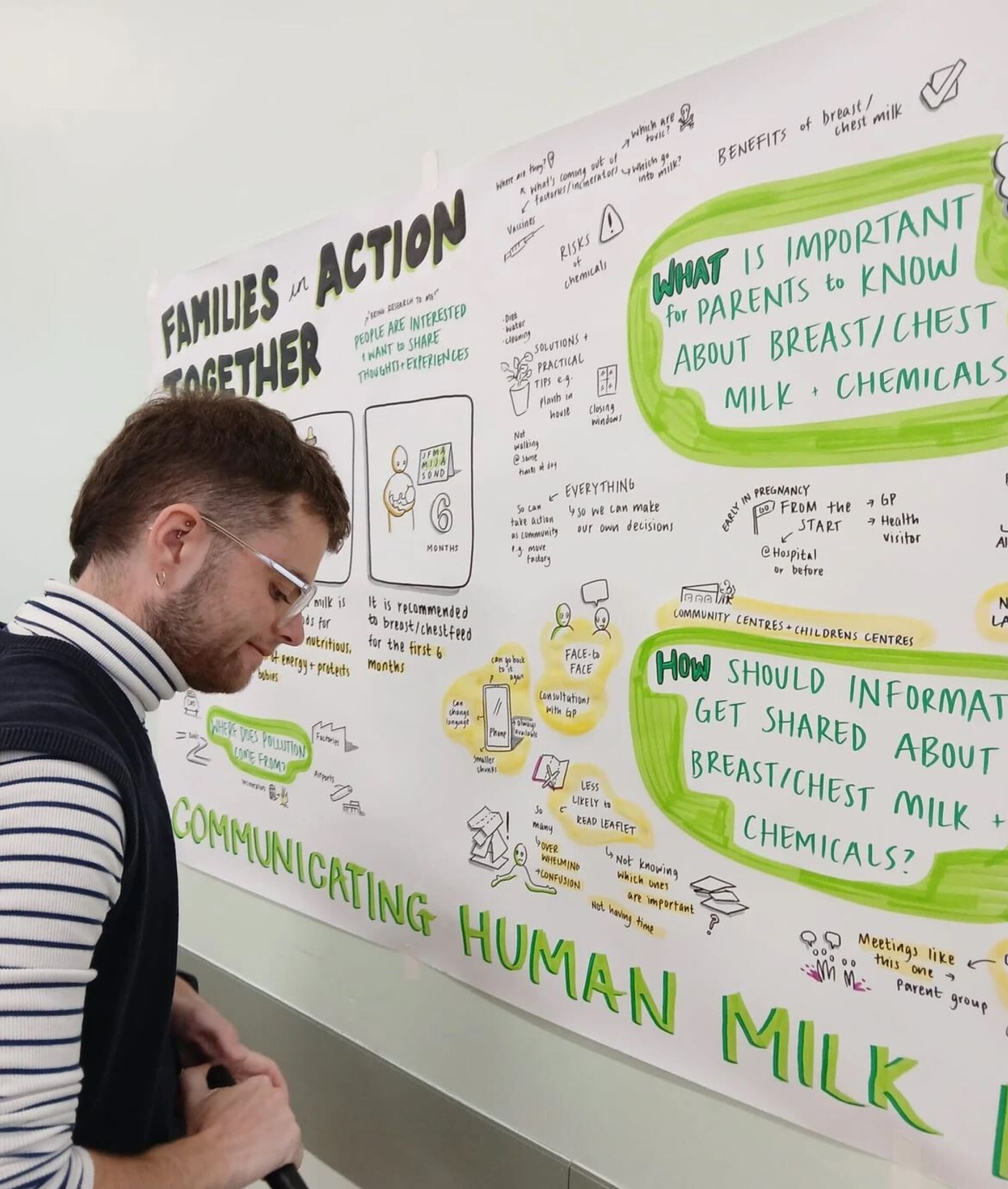From Research to Real Life: How Our Environment Affects Human Milk

Samreen Shah shares her reflections on a recent workshop held at Families in Action Together on Ruthie Parsons' research into human milk.
The following is written by Samreen Shah, volunteer at Families in Action Together and Mohn Centre Practice Partner.
Breast milk.
I’m not sure if anyone can hear those words and not have some sort of reaction or opinion. Should we breastfeed? How long should we do it for? Where can we do it if we’re out and about? What happens if we can’t? It’s something that is both intensely personal and yet a public health issue. For me, it brings back a stream of memories—beginning with my first child and ending with the relief that those years are behind me.
Or so I thought.
On Tuesday 1st October, 20 women came together to share their views on research on human milk as part of Ruthie Parsons’ research. Present were a diverse group of women from all backgrounds—some fluent in English, some not, some with children on their laps, others with children at school. What they had in common was that they were mothers, and they were here because this research mattered to them. They wanted their voices heard.
This mattered to Ruthie too. For the past three years, she has been researching chemicals and other biological molecules in human milk, acutely aware that not enough attention is paid to the issue. As a result, the opportunity to make positive environmental changes often isn’t considered. She explained how our environment exposures—everything we encounter daily—can accumulate in our bodies, including being transferred to human milk.

For many in the room, this was a moment of realisation. Between thinking of bills, finances, feeding children, and their education, few had stopped to consider the impact of their environment on their families, let alone on those breastfeeding their babies. The conversation became free flowing as this awareness deepened. The session began with Esta (the facilitator) asking the women to talk in small groups about their childhood play experiences. Many recalled playing outdoors, making toys, and the laughter and tears shared with siblings. There was a happy nostalgia about playing and freedom of their childhood.
Ruthie then presented two case studies: one of a mother whose baby was exposed to industrial waste, and another who lived on a busy road. Clear printed pictures helped convey the message, especially for those who struggled with language barriers. The group was asked two key questions:
-
What’s the best way to share this information?
-
How would mothers feel about learning the impact of the environment on human milk?
The discussion that followed was incredible. Women paired up to translate for each other, ensuring every voice was heard. They expressed that learning about the negative impact of the environment on breast milk could feel overwhelming—especially after giving birth—so it’s important to share this information early in pregnancy, along with practical solutions. One mother suggested introducing more green plants into the home, while another wanted guidance on when it’s best to open windows or take the baby for a walk.
It wasn’t just about receiving information—it was about empowerment.
One woman mentioned creating a support group to advocate for change. Another highlighted the importance of making the information accessible to those with learning disabilities, or delivering it in formats and places that are easy to reach. After all, with a new baby, there’s only so much information you can take in.
The session was rich and fascinating, with Ruthie reinforcing the importance of engaging communities. She acknowledged that while there aren’t enough guidelines in place, real change begins with understanding what women want to do with this research.
Too often, researchers stay detached from the communities their work affects. But today showed that real change happens when you step into those communities, listen, and understand that the benefits go both ways.
After the session, everyone gathered to share soup and bread. A beautiful environment built by a community of change-makers.

Article text (excluding photos or graphics) © Imperial College London.
Photos and graphics subject to third party copyright used with permission or © Imperial College London.
Reporter
Charlotte Gredal
School of Public Health